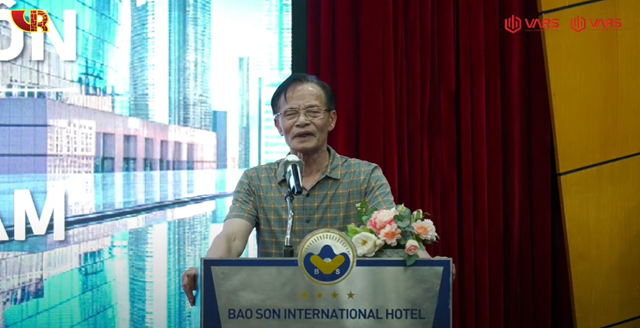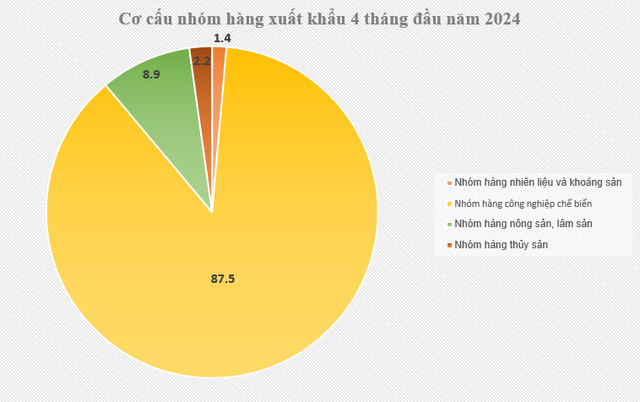Rising Real Estate Prices in Vietnam: Analysis and Recommendations
At a conference hosted by the Vietnam Association of Realtors (VARS) on April 15, 2024, Dr. Le Xuan Nghia, a member of the National Monetary and Financial Policy Advisory Council, discussed the significant increase in real estate prices in Vietnam.
Historical Perspective and Value Disparity
Since 1990, gold prices in Vietnam and globally have risen 30-fold. However, real estate prices in Vietnam have skyrocketed 100 to 400 times, while their practical value remains the same.
“A 10-meter plot of land has remained a 10-meter plot since 1990, but the money invested in it has piled up,” said Dr. Nghia. “As a result, money has become a crucial issue in the market. I remember buying a 100-square-meter townhouse in 1990 for 56 million VND. Now, people are offering 20 billion VND, but my wife refuses to sell. This illustrates the extraordinary growth and ongoing surge in this market.”
Unused Projects and Financial Constraints
Dr. Nghia highlighted a survey revealing numerous idle construction projects in Hanoi, wasting land and resources. Approximately 60-70% of these projects face financial difficulties, while the remainder encounter procedural challenges.

Dr. Le Xuan Nghia speaking at the conference. Source: Screenshot
|
TPDN Rating and Public Listing
Dr. Nghia emphasized the significant financial challenges in the real estate market. The emergence of corporate bonds (TPDN) has provided a new source of funding, with major Vietnamese corporations participating. However, many of these corporations face liquidity issues due to institutional, governance, and cyclical factors.
Since the beginning of the year, TPDN issuances by real estate corporations have surpassed those of commercial banks (NHTM), accounting for 80% of the total despite their relatively small volume of approximately 7-8 trillion VND.
This indicates that some real estate corporations have overcome past debts and raised new bonds, while others have started issuing bonds for smaller projects. Additionally, companies that previously faced legal issues have resumed bond issuances after resolving those issues.
Dr. Nghia suggested that companies explore new approaches to TPDN issuance, such as credit ratings and listing on the stock market. Companies with substantial revenue, around several hundred billion VND or more, should consider public listing.
Public listing would enhance credibility, increase transparency, and facilitate bond issuance by lowering interest rates. However, Dr. Nghia does not believe that TPDN can currently revive the real estate market due to its limited volume compared to the market’s annual requirement of 70-90 trillion VND.
“We must rely on credit, but without government support, credit cannot meet the demand, especially in terms of interest rates and legal requirements,” Dr. Nghia stated.
Government’s Role and Housing Finance Strategy
Dr. Nghia suggested that the government’s Special Task Force on Real Estate focus on resolving projects facing procedural and financial hurdles.
Addressing the issue of housing ownership, Dr. Nghia believes that it is essential for Vietnamese people to own land. He criticized the idea that the poor should only rent and not own homes, stating, “We Vietnamese never had the mindset of renting houses our entire lives and still raising our children to be talented individuals… The Vietnamese mindset is to have at least a plot of land to call our own.”
Dr. Nghia commended the Prime Minister’s emphasis on building homes for citizens rather than rental properties. He also suggested a policy focused on social housing (NOXH) to address housing challenges for the poor.
Dr. Nghia urged the government to discard the 120 trillion VND package proposed by four state-owned NHTMs, which aimed to support the real estate market in general, including NOXH construction.
Instead, he advocated for a comprehensive housing finance strategy that addresses housing needs across the board. Dr. Nghia cited examples of successful housing finance models in other countries where banks facilitate homeownership with government-backed low interest rates.
“We have done the opposite, deducting 2% from the market rate. After three years, we float it again, and the loan terms are too short. Homebuyers in difficult circumstances cannot afford it. We need to redesign the system,” he said.
Dr. Nghia emphasized that real estate developers seek longer loan terms and interest rates of 7.5-8% per year. However, these rates may be high for homebuyers. Developers desire fixed interest rates of 2.5% per year, like in Singapore, to ensure affordability, legal compliance, and a stable supply of land and buyers.
Despite low interest rates on deposits in Vietnam, loan interest rates remain among the highest in the world. Dr. Nghia expressed hope that loan interest rates will decline, while maintaining stable long-term interest rates for state-owned banks.

Experts speaking at the seminar. Source: Screenshot
|
Government Bond Issuance for NOXH
Dr. Nghia supported the Ministry of Construction’s proposal to issue government bonds for NOXH construction. He noted that the TPDN crisis is not unique to Vietnam and that governments in South Korea and Belgium have established rescue funds by spending 40 billion USD to buy back bonds from defaulted issuers.
He believes that government bond issuance is necessary and that Vietnam has a strong capacity for it. Most government bonds are purchased by the banking system as highly liquid and safe assets.
The total assets of Vietnam’s banking system have reached 15 million billion VND, making it possible to issue 10 billion USD in government bonds, which would represent less than 2% of those assets. The liquidity and reputation of Vietnam’s government bonds make them attractive to international investors.
Conclusion
Dr. Le Xuan Nghia’s analysis highlights the significant challenges facing the Vietnamese real estate market, including soaring prices, unused projects, financial constraints, and the need for a comprehensive housing finance strategy. He proposes government intervention through credit rating and public listing of TPDN, issuance of government bonds for NOXH construction, and the implementation of a long-term stable interest rate policy to support homeownership. These measures aim to address the imbalances and promote sustainable growth in the real estate sector.





































